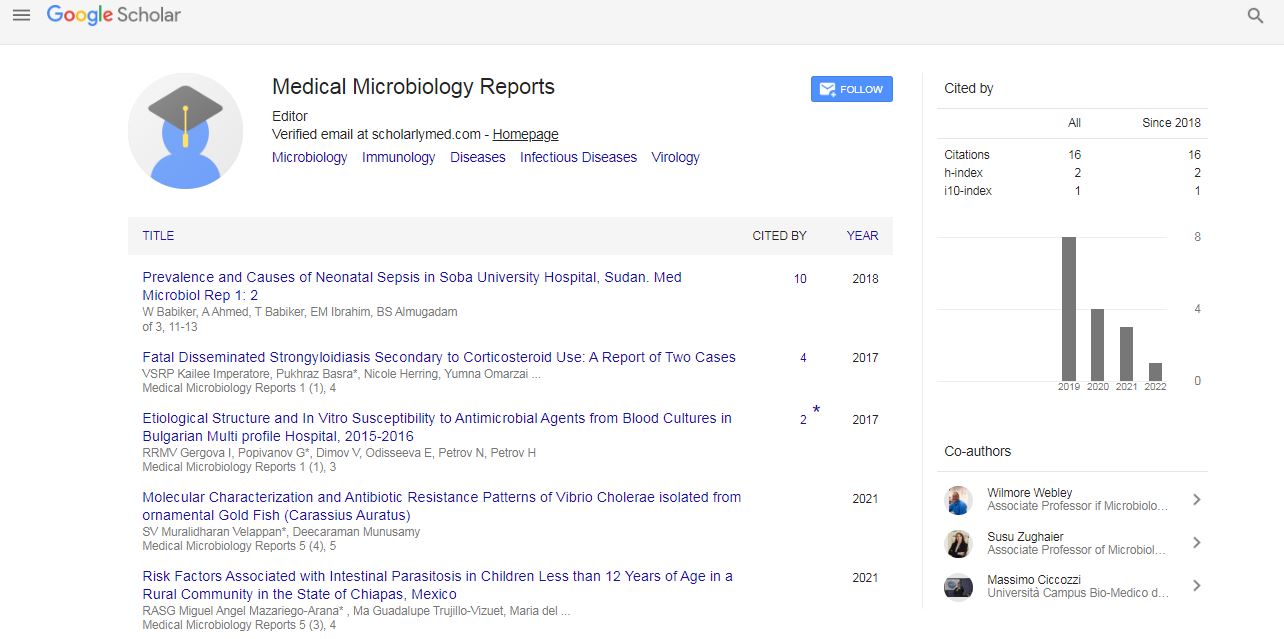Can phylogenetic type predict resistance development?
Humera Nazir, Sha Cao, Mubashar Aziz and Diarmaid Hughes
Quaid-i-Azam University, Pakistan
Uppsala University, Sweden
Bahauddin Zakariya University, Multan
: Med Microbiol Rep
Abstract
Urinary tract infections (UTIs) are frequently reported as owed to multi drug resistant pathogens. Present study was designed to determine whether phylogenetic type is associated with the development of multidrug resistance to antibiotics. Urinary tract infection (UTI) isolates from three hospitals in Pakistan were collected over a period of 10 months and were analysed in terms of causative bacterial species and drug susceptibility. Multidrug resistance was widespread frequencies were 50% for several antibiotics, including ciprofloxacin and third-generation cephalosporins for Escherichia coli isolates. Majority of E. coli isolates remained susceptible to meropenem and fosfomycin. Sixty E. coli isolates were analysed in detail to determine correlations between resistance phenotypes and genotypes, mutation rates and phylogenetic group. Most isolates had elevated mutation rates, suggesting this was being selected. The majority of ciprofloxacin-resistant isolates carried a specific set of mutations in the quinolone resistance-determining region of gyrA and parC (S83L, D87N, S80I and E84V). In addition, 67% of the ciprofloxacinresistant E. coli isolates carried one or more horizontally transmissible determinants of resistance to ciprofloxacin, including aac(6′)-Ib-cr, qepA, qnrA and qnrB. There was a significant correlation between resistance to thirdgeneration cephalosporins, being an extended-spectrum b-lactamase producer, being resistant to ciprofloxacin and belonging to phylogenetic group B2. The data suggest that features of the bacterial genotype might facilitate the development of Multi drug resistance in particular lineages. Better understanding of the mechanistic basis for correlations between drug resistance and genotype could potentially be exploited to develop molecular tools for the prediction of resistance development.
Biography
E-mail: humeranazir27@gmail.com
 Spanish
Spanish  Chinese
Chinese  Russian
Russian  German
German  French
French  Japanese
Japanese  Portuguese
Portuguese  Hindi
Hindi 
